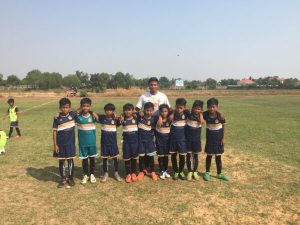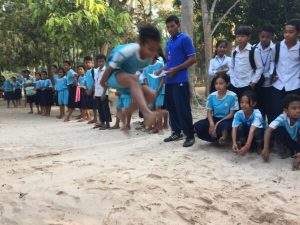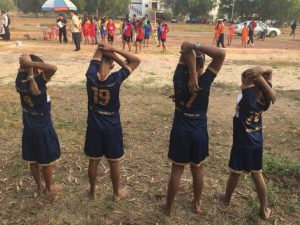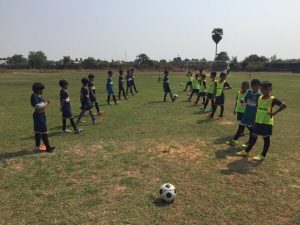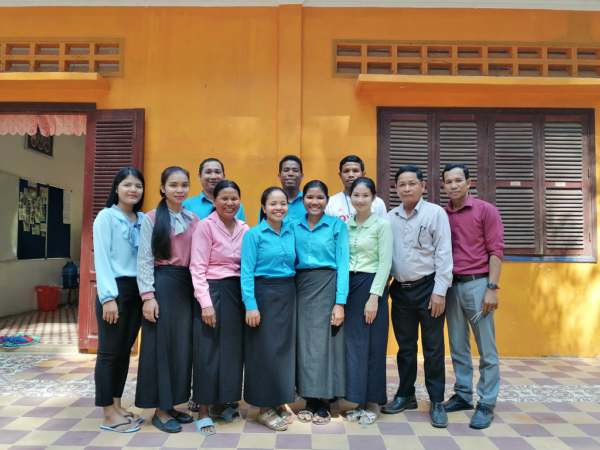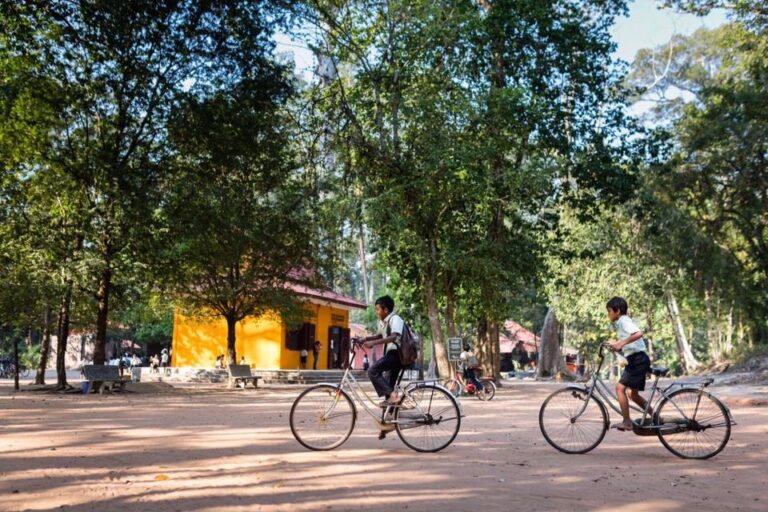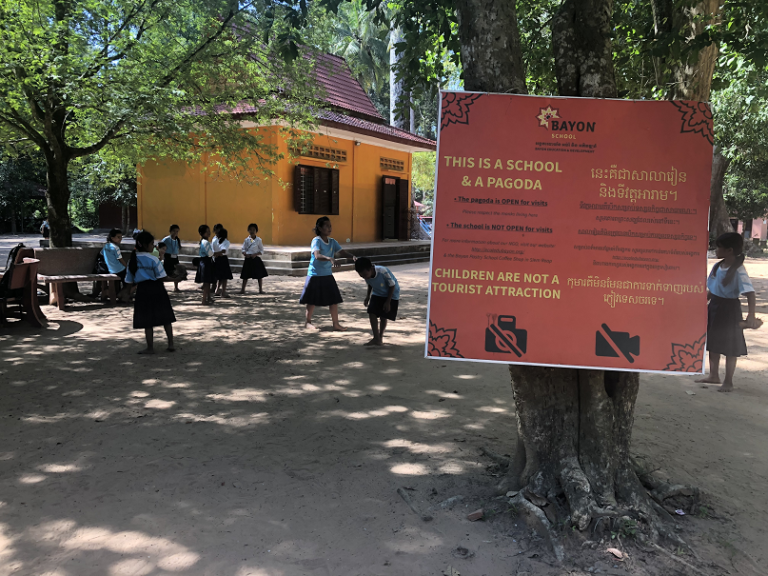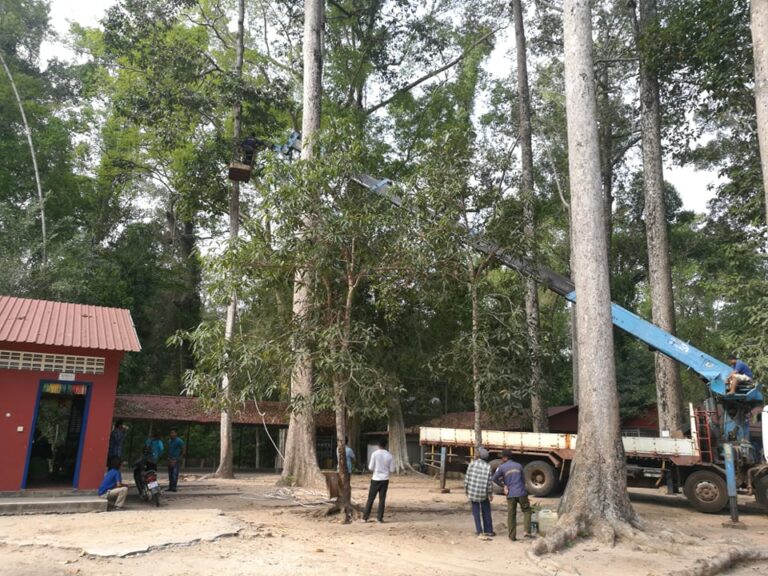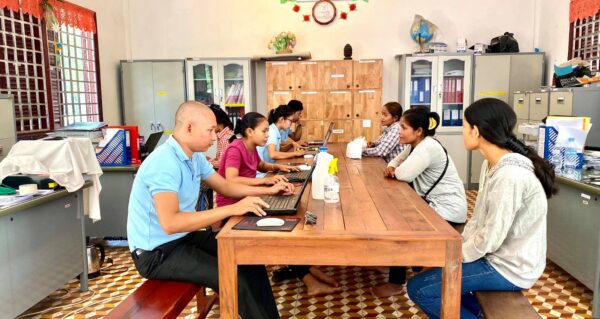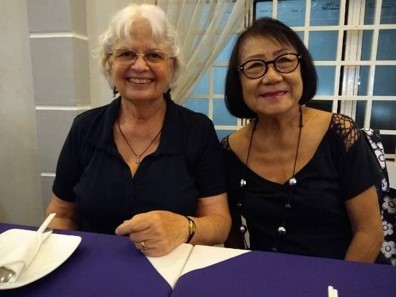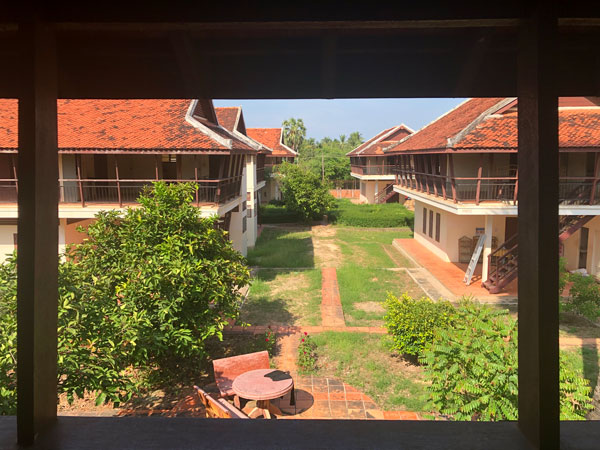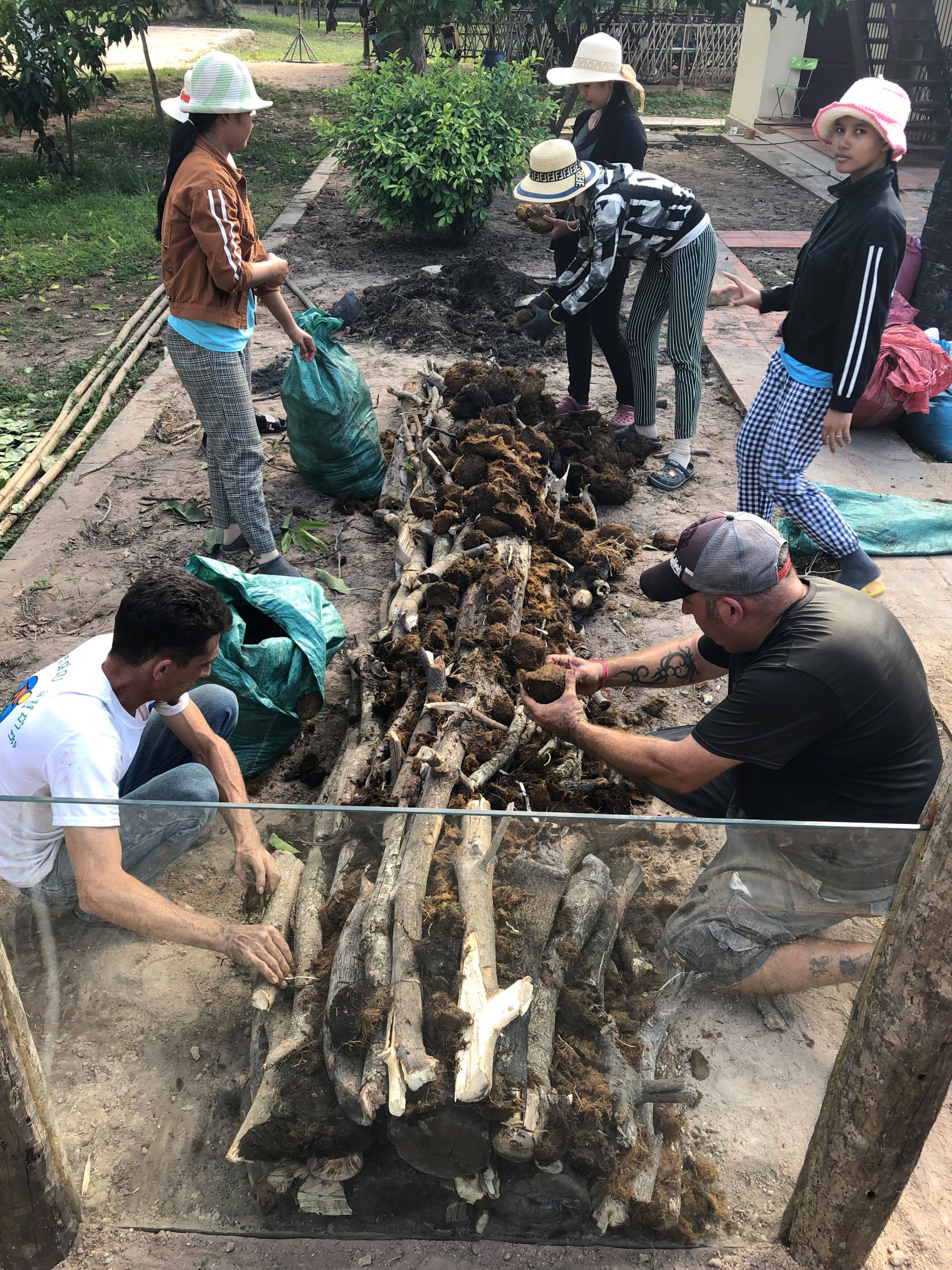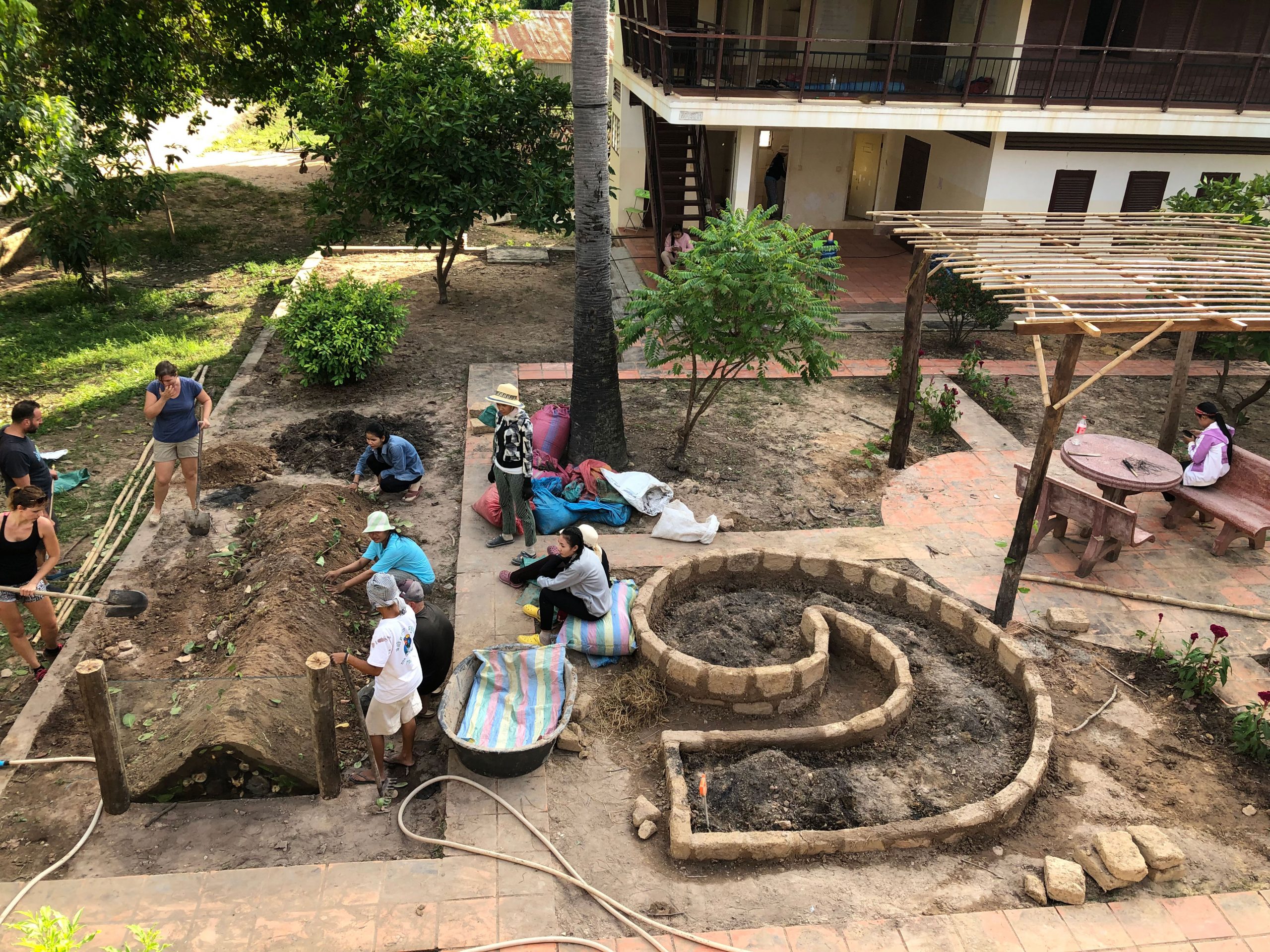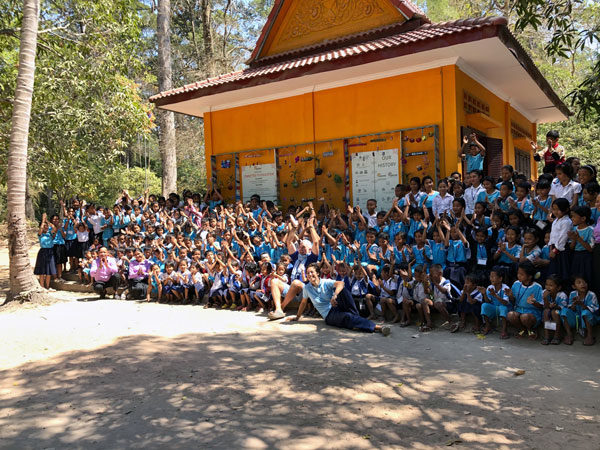
Education Throught Artistic Awakening In Primary School
This project is very close to our heart at Bayon School as it fits in perfectly with our desire to develop a participative education and learning experience, combining theoretical knowledge with personal development and know-how through various extra-curricular activities which we have recently introduced (PE, Apsara dance, traditional Khmer puppets and arts & crafts). For three weeks, all the pupils from Grade 1 to Grade 6 took turns to express their imagination for a magnificent end result!
Last year, Gilles oversaw three different projects whilst he was here; painting the wall of Elodie’s Canteen, making a toothbrush rack for all the classrooms as well as a fabulous cardboard model of the primary school, which was unfortunately damaged during the month of the monsoon just after he left.
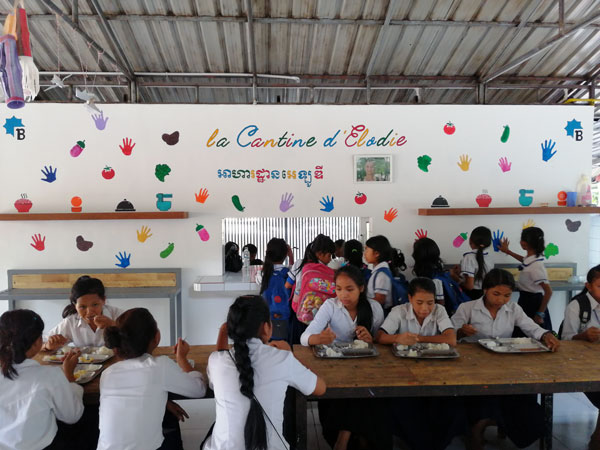 Gilles and our volunteers had been thinking about new projects which could, this time, be durable over time: this year’s programme includes a striking mural fresco on the wall of the infirmary, customisation of our new shoe cabinets as well as a green wall using only recycled materials. Let’s looks them more closely:1. Mural fresco for the infirmary
Gilles and our volunteers had been thinking about new projects which could, this time, be durable over time: this year’s programme includes a striking mural fresco on the wall of the infirmary, customisation of our new shoe cabinets as well as a green wall using only recycled materials. Let’s looks them more closely:1. Mural fresco for the infirmaryFor the first week of this creative workshop, the children gave the walls of the infirmary a complete make-over. The children really enjoyed reproducing the drawings provided by our very talented Sreyleak, former student of the very first intake at the Pastry School, who now works with us in the Coffee Shop. This first stage needed precision and rigour to achieve such a wonderful end result, to the great delight of Jean-Pierre and Michèle, our volunteers in charge of the infirmary and the health projects.
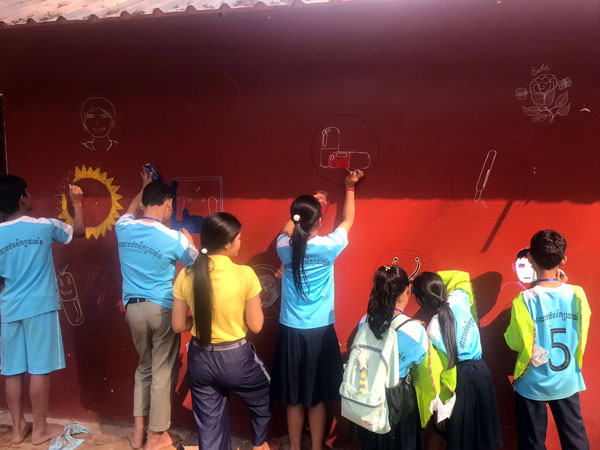
2. Decoration of the Shoe Racks
With dozens of small shoes discarded in front of the classrooms, the primary school looked a little chaotic and so we thought it was time to install shoe racks in front of each class. These were then brought to life by Gilles and his little helpers!
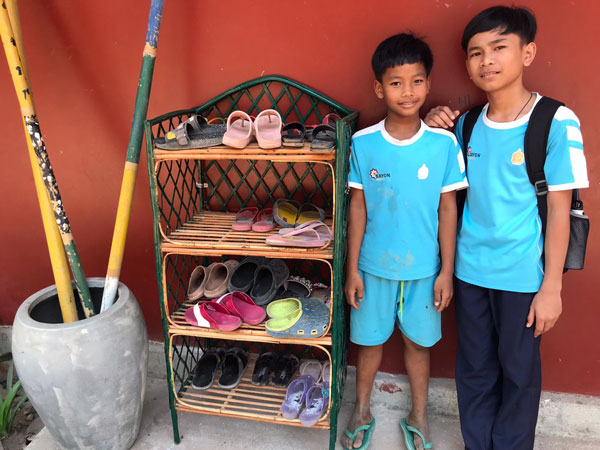
3. Green wall with recycled materials:
Last but not least, volunteers and staff joined forces to collect all sorts of recycled materials, producing an interesting mix of bicycle and car tyres, coconuts, plastic bottles and wooden planks. A touch of DIY here and a coat of paint there… and our green wall was born.
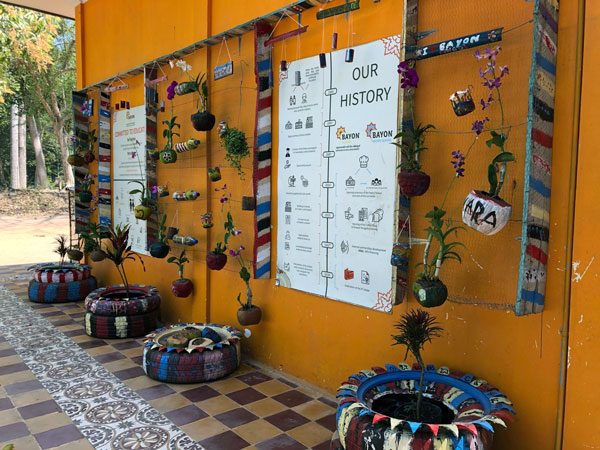
Everybody of all ages took part in the project and enjoyed themselves immensely. It was with emotion and stars in his eyes that Gilles left the school and the children. We have an inkling that, once settled in his seat, he was already thinking about the projects he could organise next year.
Thank you Gilles!

